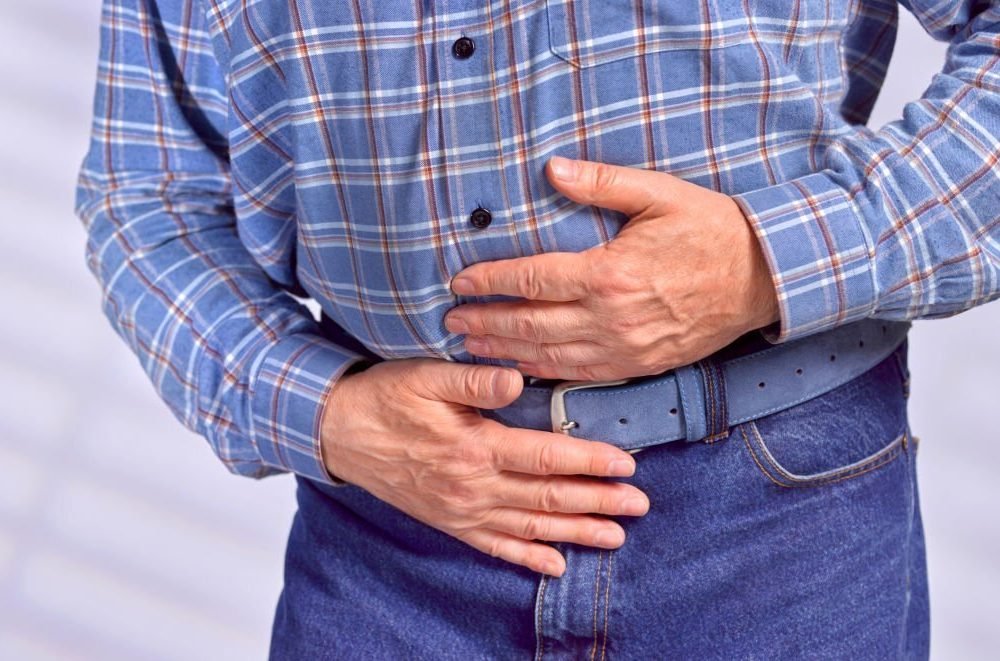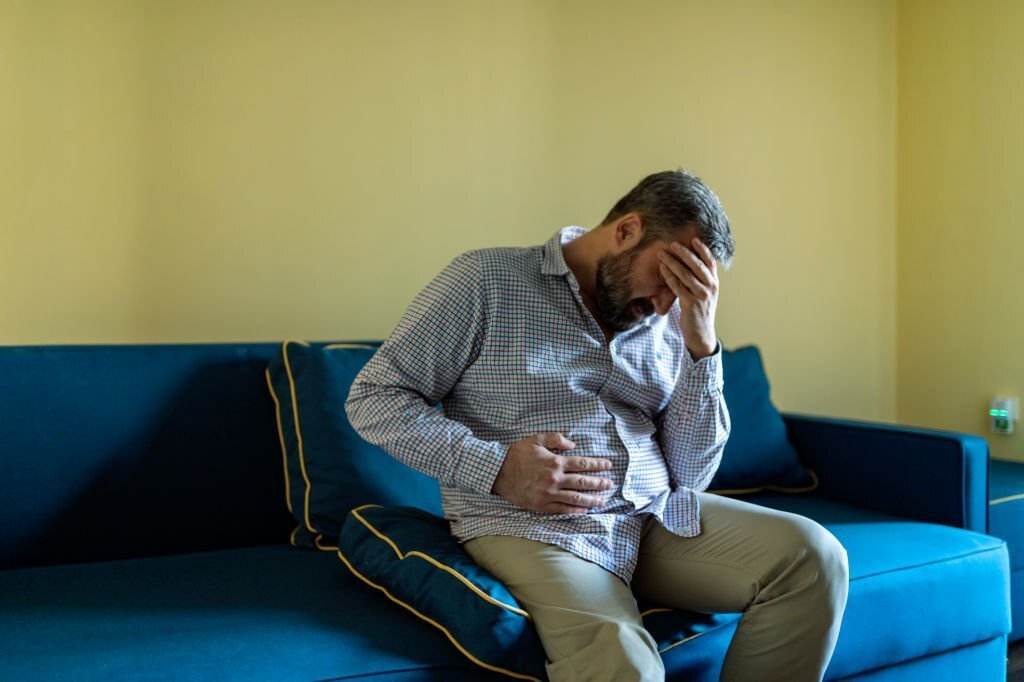
Last Updated on June 5, 2023 by Beth Skwarecki
Diverticulitis is a condition where small pouches called diverticula form in the lining of the digestive system, typically in the colon. When these pouches become inflamed or infected, it can cause uncomfortable symptoms such as abdominal pain, bloating, and changes in bowel habits.
However, many people with diverticulitis also experience fatigue and low energy levels, which can be just as debilitating as the physical symptoms. In this article, we’ll explore why am i so tired of diverticulitis and what you can do to manage it.
What Is Diverticulitis?
Diverticulitis is a condition in which small pouches, called diverticula, form in the lining of the digestive system, most commonly in the large intestine (colon). These pouches can become inflamed or infected, causing uncomfortable symptoms, including abdominal pain, bloating, and changes in bowel habits. The exact cause of diverticulitis is unknown, but it is believed to be related to a low-fiber diet and constipation, which can put pressure on the colon and lead to the formation of diverticula. In severe cases, diverticulitis can lead to complications such as abscesses, perforations, and fistulas.
What Are The Symptoms Of Diverticulitis?
The symptoms of diverticulitis can vary depending on the severity of the inflammation and infection. Some common symptoms include:
- Abdominal pain, typically on the left side of the lower abdomen
- Bloating and gas
- Nausea and vomiting
- Constipation or diarrhea
- Fever and chills
- Loss of appetite
- Fatigue and weakness
- In some cases, diverticulitis can cause more serious symptoms such as rectal bleeding, urinary
- symptoms, and a high fever.
In some cases, diverticulitis can cause more serious symptoms such as rectal bleeding, urinary symptoms, and a high fever.
How Does Diverticulitis Cause Fatigue?
Diverticulitis can cause fatigue in a few different ways:
Pain And Discomfort
Abdominal pain and discomfort are common symptoms of diverticulitis, which can cause a person to feel tired. The pain and discomfort can make it difficult to sleep, which can also contribute to feelings of fatigue.
Inflammation
Inflammation is a key component of diverticulitis, and it can cause a person to feel tired and run down. When the body is fighting inflammation, it can divert energy away from other processes, which can lead to fatigue.
Nutrient Deficiencies
People with diverticulitis may have difficulty absorbing nutrients from their food, especially if they have diarrhea or are on a low-fiber diet. This can lead to nutrient deficiencies, which can cause fatigue and other symptoms.
Medications
Some medications used to treat diverticulitis can cause fatigue as a side effect. For example, antibiotics can disrupt the balance of bacteria in the gut, which can cause fatigue and other symptoms.
Diagnosis of Diverticulitis
The diagnosis of diverticulitis involves a combination of medical history, physical examination, and diagnostic tests. Medical history includes symptoms, previous medical conditions, and surgeries. Physical examination involves gentle palpation of the abdomen. Blood tests may be ordered to check for signs of infection or inflammation. Imaging tests, such as CT scans or ultrasounds, may confirm the diagnosis and determine the extent of inflammation. Colonoscopy may be recommended to rule out other conditions.
Tips For Managing Fatigue With Diverticulitis

If you’re experiencing fatigue as a result of diverticulitis, there are several things you can do to manage your symptoms and improve your energy levels:
Rest And Sleep
Getting plenty of rest and sleep is important for allowing your body to heal and recover. Try to get at least 7-8 hours of sleep per night, and take naps or rest breaks during the day if needed.
Stay Hydrated
Drinking plenty of water and other fluids can help prevent dehydration, which can contribute to feelings of fatigue. Aim for at least 8-10 cups of water per day, and avoid alcohol and caffeine, which can be dehydrating.
Eat A Balanced Diet
Eating a healthy diet that includes plenty of fiber-rich foods can help manage diverticulitis symptoms and prevent nutrient deficiencies. Aim for at least 25-30 grams of fiber daily, and include plenty of fruits, vegetables, whole grains, and lean protein sources.
Avoid Trigger Foods
Certain foods can trigger diverticulitis symptoms and contribute to fatigue. Common trigger foods include high-fat, spicy, caffeine, and alcohol. Avoid these foods if they make your symptoms worse.
Exercise Regularly
Exercise can help improve energy levels and reduce feelings of fatigue. Start with gentle activities like walking or yoga, and gradually increase your intensity as your symptoms improve.
Manage Stress
Stress can exacerbate symptoms of diverticulitis and contribute to feelings of fatigue. Practice stress-reducing techniques like deep breathing, meditation, or yoga to help manage your stress levels.
How Long Does Fatigue Last After Diverticulitis?
Fatigue is a common symptom experienced during and after an episode of diverticulitis, which is an inflammation or infection of the diverticula. The severity of the infection, individual health factors, and the effectiveness of treatment all play a role in determining the duration of fatigue. In most cases, fatigue gradually improves as the infection resolves, but it can persist for weeks or even months if the infection was severe or if complications occurred.
When To See A Doctor
See a doctor if you experience any symptoms of diverticulitis, including abdominal pain, bloating, changes in bowel habits, and fever. In particular, you should seek medical attention right away if you experience any of the following symptoms:
- Severe abdominal pain
- Rectal bleeding
- Persistent vomiting or inability to keep down fluids
- High fever (above 101°F)
- Signs of dehydration, such as dark urine, dry mouth, or lightheadedness
These symptoms may indicate a more severe case of diverticulitis or complications such as abscesses, perforations, or fistulas. If left untreated, these complications can lead to serious health problems.
Diverticulitis Prevention
Here are some tips to prevent diverticulitis:
- Eat a High-Fiber Diet
- Stay Hydrated
- Exercise Regularly
- Manage Stress
- Avoid Smoking and Alcohol
- Take Care of Your Digestive Health
- Consider Supplemental Fiber
- Be Careful with Certain Foods
FAQs
How Long Should You Rest With Diverticulitis?
There is no set amount of time to rest with diverticulitis, as it can vary depending on the severity of symptoms and individual circumstances. It’s important to rest as needed and follow your doctor’s recommendations for managing your symptoms.
What Foods Trigger Diverticulitis?
Foods high in fat, red meat, processed foods, and low in fiber are common triggers for diverticulitis. Spicy foods, alcohol, and caffeine can also exacerbate symptoms.
Can Diverticulitis Cause Extreme Fatigue?
Diverticulitis can cause extreme fatigue due to the body’s immune response to the infection, inflammation, and changes in bowel habits. It’s important to manage symptoms and practice self-care strategies, such as getting adequate rest, staying hydrated, and eating a healthy diet to help alleviate fatigue.
What Is The Best Natural Anti-Inflammatory For Diverticulitis?
While there is no specific natural anti-inflammatory for diverticulitis, some foods and supplements that may help reduce inflammation include ginger, turmeric, omega-3 fatty acids, and probiotics.
Can Vitamin D Help Diverticulitis?
Some evidence suggests that vitamin D may help reduce inflammation and improve immune function, which may benefit individuals with diverticulitis. However, more research is needed to determine the optimal dosage and effectiveness of vitamin D supplementation for diverticulitis.
Conclusion
Diverticulitis can be a painful and uncomfortable condition that can lead to various symptoms, including fatigue. However, you can manage your symptoms and improve your energy levels by following a few simple tips, such as getting plenty of rest, staying hydrated, and eating a healthy diet. It’s also important to seek medical attention if you experience severe symptoms or if your symptoms worsen over time. You can manage your diverticulitis symptoms and improve your overall health and well-being with the right care and treatment.

Beth is Cloudmineinc’s senior health editor and a certified personal trainer. She has over 10 years experience as a science journalist and is the author of two books. She deadlifts over 315 lbs.